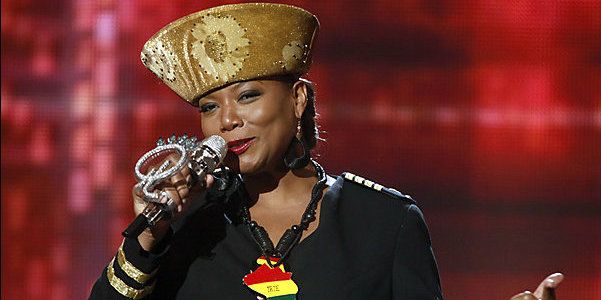How Black Women's Music Introduced Me to Feminism

For the past few months on twitter, my timeline was inundated with discussions about feminism; what it is and isn’t, who is or isn’t a feminist, White feminism, Black feminism, and on and on and on. Listening to Beyonce’s new album and following the discussion about whether or not the album is feminist (@thetrudz has a great post about the Black feminism of Beyonce’s album, here), got me thinking about my first exposures to feminist ideals, which, aside from the women in my community, was through music.
Of course as a kid I didn’t know the lyrics of the music I loved so much were feminist, but they really did make a great impact on me. As a young Black girl, I just thought it was so cool to see women who looked like me singing and rapping in a language I understood. Even at a young age I did comprehend the meanings of many songs, in particular Salt N Pepa’s "Ain't Nothin But a She Thing
There are some people who like to say that Black music lost its radical or social consciousness after the 70s, but I don’t agree with that; there was still much social commentary in Black music in the 90s, especially with the increasing popularity of Hip Hop, some of it outwardly political, some of it more subtle. If we examine the lyrics of R&B songs, particularly by female artists, much of it exposes and resists various forms of abuse; songs that immediately come to mind are Cheryl Pepsii Riley’s "How Can You Hurt the One You Love ," the aforementioned Superwoman, and Eve’s "Love Is Blind."
I also love the openness of women artists in expressing their sexual needs to their partners. Women often have a hard time demanding that our needs be met in relationships with men because we don’t want to be perceived as “hoes” and have been fed the message that sex is something we give to men for their pleasure not something that is a form of intimacy that people mutually engage in and receive pleasure from. Mary J. Blige’s "Slow Down" and Janet Jackson’s "Let's Wait Awhile" speak to women demanding respect from men by not having sex until she’s ready, which is also important. Salt N Pepa’s None of Your Business is the business, in regards to resisting the public policing of black women’s sexuality; who a woman has sex with and how many is not up for public discussion and regulation.
Janelle Monae’s album The Electric Lady is one of my favorites released last year, and it recently dawned on me that a song on the album, Ghetto Womans a direct descendant of Marlena Shaw’s Woman of the Ghetto . Both songs are tributes to Black women, in the hood, who struggle everyday to survive and create a good life for their families. There’s no scorn or shame of Black mama’s in the hood, only love and respect. Here are a few lyrics from each song:
Ghetto Woman
Carry on Ghetto Woman
I see you working night to morning light yet no one cares;
Carry on Ghetto Woman
Cause even though they laugh and talk about the clothes you wear
I wish they could just realize
That all you’ve ever needed was someone to free your mind
Carry on Ghetto Woman
Cause even in your darkest hours I still see your light
Woman of the Ghetto
I am a woman
I am a woman
I am a woman, yes I
I said that I am,
I mean that I am,
I’m the woman, I’m the woman, I’m the woman of the ghetto
Strong, true,
A woman
A woman
Feminist and/or womanist ideals have always been expressed in black music by women artists, from Bessie Smith, Billie Holiday, Aretha Franklin, Betty Davis, to Queen Latifah, TLC, Salt N Pepa, Beyonce, Joi, and Janelle Monae. I plan on writing more about feminist and womanist ideals in Black music, revisiting some albums with a more open mind and knowledge of the need for nuance in these discussions.

No comments: